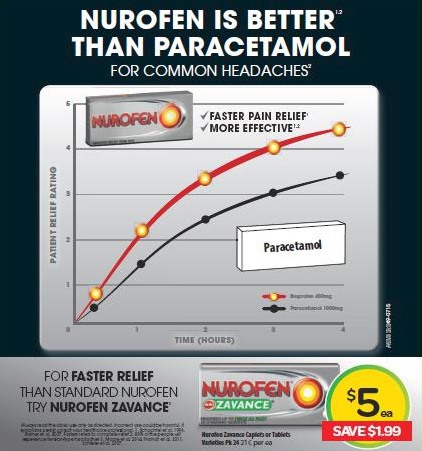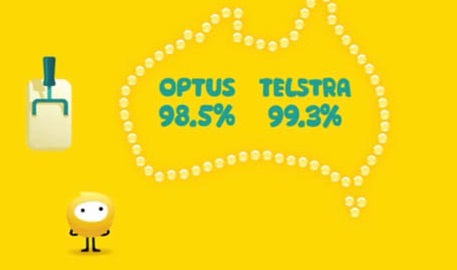Ah yes comparative advertising. What better way to sell your own product than to trash the competition. So persuasive! So profitable! So much more risky than other ads.
The latest example is this ad for Nurofen.

The graph is very effective. You can immediately see that Nurofen is both faster and more effective than Panadol and make your purchase choice accordingly. The thing is, the data was sourced from a single study in 1996. And there were more recent studies that concluded that ibuprofen was not in fact superior to paracetamol.
GSK, who sells Panadol, sued Reckitts, who sells Nurofen, saying the ads were misleading. The Federal Court agreed. Even though GSK represented the 1996 study accurately, the claims were misleading given the contradictory and more recent research findings.
Comparative ads are often backed with statistics and graphs and stuff like that. They look really legit on their face, so audiences trust them. But they can easily mislead. Here are a couple of our other favourite examples.
- The old Optus coverage case. What do you reckon these
statistics are saying?

The ad's not saying Optus offers mobile coverage across 98.5% of Australia. It's actually saying Optus has coverage for 98.5% of the population, which is quite a different thing given the concentration of the population on the coastal fringe. Telstra sued, and the Court agreed the ads were misleading. - The old IVF success rates racket. An ACCC investigation revealed that a bunch of unnamed fertility clinics were making dodgy success rate comparisons, without properly explaining the data behind the claims. Stuff like "You're 40% more likely to take home a baby" and claimed success rates of up to 90%. Some would exclude unsuccessful clients or clients who left to try another clinic. Others would doctor (yep) their success rate by referring to 'clinical pregnancies' rather than actual birth rates. The perps changed their claims, so the ACCC didn't push prosecutions.
The wrap up? Comparative advertising: guaranteed to sell products, guaranteed to provoke your competitors. In the immortal words of Brian Fantana in Anchorman, 60% of the time it works every time.
We do not disclaim anything about this article. We're quite proud of it really.



